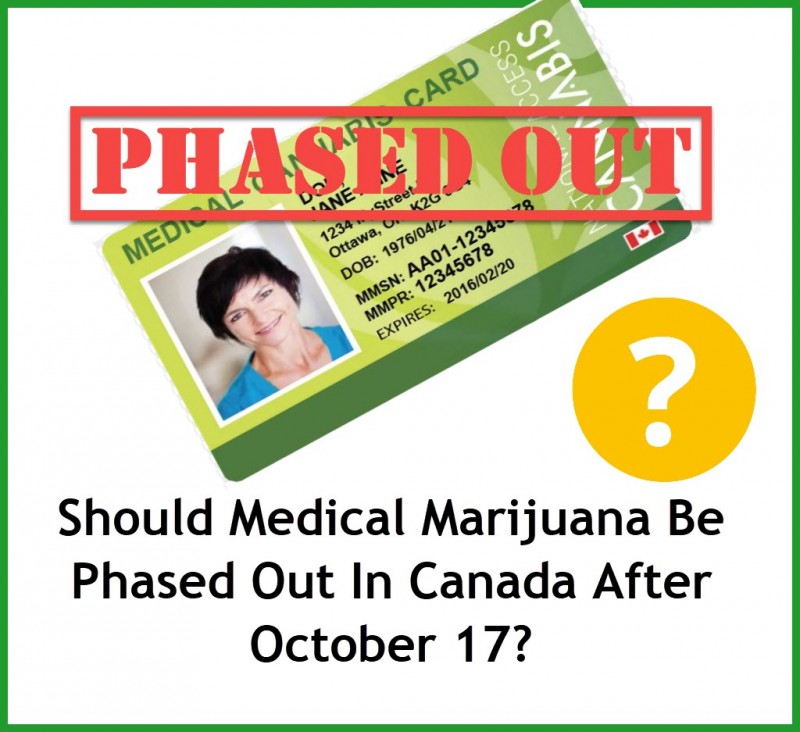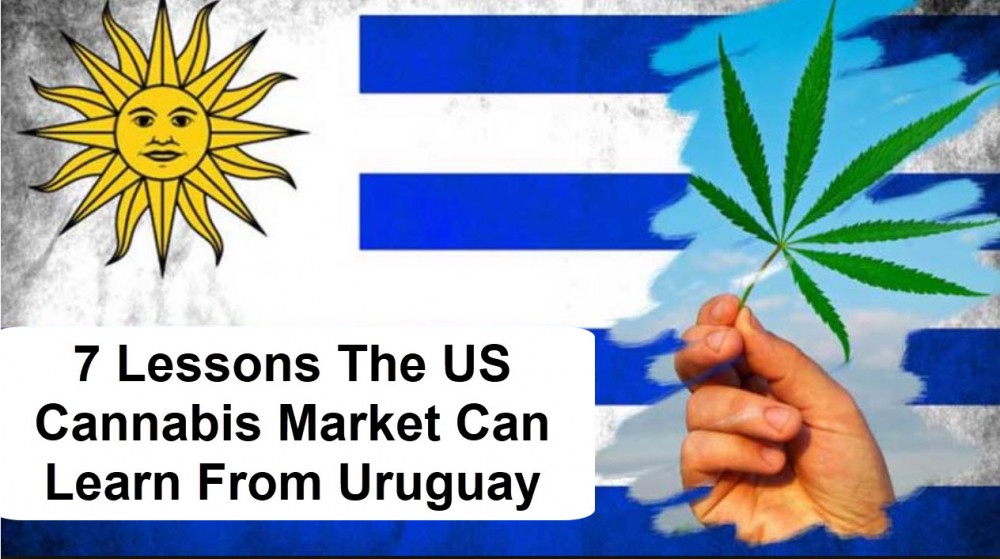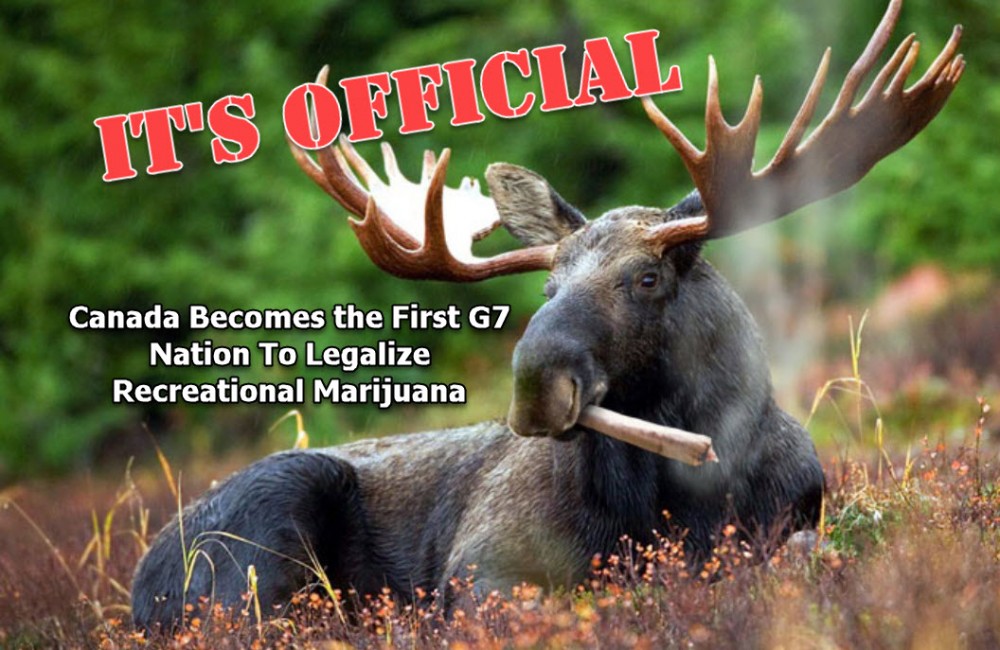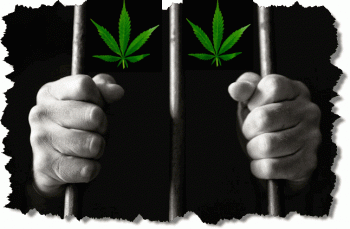Should Medical Marijuana Be Phased Out In Canada After October 17?
Should Medical Marijuana Be Phased Out in Canada for Recreational Only? from CannabisNet on Vimeo.
Some doctors in Canada think that the medical cannabis system should be dropped once recreational use is legalized by October 17, while others feel that this isn’t necessary.
“The medical profession, as a whole, has really struggled with the whole concept of medical cannabis. There’s definitely some physicians who feel comfortable in that area but most don’t,” says Canadian Medical Association vice-president of medical professionalism Dr. Jeff Blackmer. He tells CBC Calgary News that it’s mostly because there isn’t enough proof that cannabis works as medicine.
“And that is primarily because of the lack of evidence, the lack of scientific studies showing it actually works, the lack of knowledge around dosing and interactions with other medications – all these types of things. Our recommendation was that once it is legalized, that there really is no reason for a separate medical system,” he explains.
Dr. Blackmer adds that the very dearth of clinical studies proving cannabis works is the reason why many healthcare providers in Canada won’t be covering the cost of medical cannabis. “Right now, the type of evidence, the quality of evidence that we typically look for before approving drugs or before funding drugs, isn’t there for cannabis,” he says. “That’s not necessarily to say that it won’t be there in the future, and certainly that’s something that a lot of physicians are watching carefully.”
Dr. Blackmer says that ongoing education about cannabis will be critical for legalization. “The reason for that is there’s a lot of misperceptions about cannabis and we know that, from surveys and studies that have been done,” he says. “We really want people, when they’re deciding whether or not to use cannabis once it becomes legalized, to make an informed decision. To understand that there are risks associated with that, that there are potential health consequences.”
He feels that by October 17, people will no longer have a good reason to go to a doctor to access cannabis. “If anyone can go down to the local dispensary and get cannabis, there’s really no need for a separate medical authorization system. You really don’t need to have people going to their doctors because anyone who has a medical condition and thinks they might benefit from it can go ahead and try it,” Dr. Blackmer explains. “And there’s nothing to stop them from asking their doctor, ‘might it work for this condition’ or ‘do you have any idea about what doses I should use,’ or these types of things.”
He points to the fact that the quantity of medical authorizations has dropped in jurisdictions where cannabis is legal.
But not everyone agrees with the CMA. Many feel that the current medical system in Canada leaves patients with much to be desired, especially when it comes to them getting their information about cannabis.
The Process
This is because when doctors evaluate medicines, they are looking for results of randomized controlled trials, which are usually underwritten by pharmaceutical companies. Big Pharma then recover the costs of conducting these studies by creating a monopoly on the production of medicines that have passed clinical trials, and then patent them.
But when it comes to cannabis, there are easily over 500 different kinds of strains available yet not one of them can be considered as the ultimate panacea for every kind of illness. Because of this, it simply isn’t possible to patent a cannabis strain. We can’t ask pharmaceutical companies to fund randomized controlled trials for cannabis, nor can we expect the government to shoulder these kinds of studies. Some doctors ague that cannabis is an herbal medicine with a long history of being used, and it doesn’t contain the same chemicals and impose side effects the way pharmaceuticals do – and for this reason, shouldn’t be subject to the same standards as pharmaceutical drugs.

The Other Side Of The Coin: Why Canada Shouldn’t Let Go Of Medical Cannabis
So while the CMA thinks that MD’s no longer need to act as a gatekeeper once legalization arrives, many others feel that there is still a need for some oversight. The CMA has been firm on this stand; they’ve even submitted their position to Health Canada, the federal Task Force on Cannabis Legalization and Regulation, and the House of Commons standing committee on health.
But if a separate system for medical and recreational cannabis are kept exclusively; which, Health Canada says is what will happen post legalization, the CMA recommended that the legislation should be reviewed within five years.
“It is simply a reality now that cannabis is part of the medical landscape,” says James MacKillop in a CBC article. McKillop is the director for the Peter Boris Centre for Addictions Research and the Michael G. DeGroote Centre for Medicinal Cannabis Research at the McMaster University in Hamilton. “I think we need to address that reality head-on as opposed to walking away from the reality at this point.”
McKillop thinks that doctors should continue working closely with patients to help them make smart choices about their health. “My position is not that we should retain a medical cannabis system because it’s been proven over and over again in these many contexts – but actually because we really need to maintain surveillance and do more research and engage patients rather than permitting them to simply move over to the recreational products,” he explains.
Additionally, keeping the systems separate would mean that users buying from pharmacies would be able to obtain medical advice that wouldn’t be available if they buy from just one source. It’s the same thing as when buying alcohol from a shop or a convenience store.
Another important thing to consider would be if the two systems are combined, this could leave patients vulnerable. “With medical cannabis, having separate categories for it allows for certain protections,” says cannabis advocate Steven Stairs. “There are all these different layers… out there to benefit the idea of separating the two.” He explains that in Manitoba, the local retail act only allowed eligible MMJ users to grow their own medicine. “In this province, specifically, it gives patients freedom and rights to have access to the medicine they’re growing,” he says.
The Difference Between Medicinal and Recreational Cannabis Products
The CBC article also includes insight from the Canadian Nurses Association (CNA).
According to Karey Shuhendler of the CNA, there is a need for a separate system because medical and recreational cannabis products vary in their therapeutic value due to their compositional differences. Medicinal cannabis typically has more CBD (cannabidiol), a medicinal compound known to alleviate a great deal of ailments but does not produce a high. Medical products also have lower levels of THC (tetrahydrocannabinol), the substance that gets you high. CNA currently represents over 139,000 nurses in Canada, and they have long been supporting the case for a separate system. They are primarily apprehensive about the issue of access, because dropping the medical cannabis system may enable producers to invest more on making recreational products.
“We think that it’s foreseeable that without the protection of a separate stream for medical cannabis, the production of products will be based on consumer demand, which will be largely for what people call recreational purposes,” Shuhendler explains. “Protecting a medical stream helps to ensure that there’s going to be product produced for medical purposes, and that access to those products won’t be minimized and swayed toward a more commercially driven product demand.”
Lessons From Uruguay
Author Javier Hesse believes that Canada can benefit from Uruguay’s mistakes. Uruguay is the first country in the world to legalize recreational cannabis, and in doing so decided to merge the medicinal and recreational systems together.
This led to unforeseen problems, especially when it came to supply.
“Medical uses were disregarded at first,” Hasse says. It was only after legalization that the government began distributing licenses for growers to cultivate medical-only cannabis, and licenses that would make oils and other products to meet the increasing demand.
The South American nation licensed 8,750 individual growers who are permitted to grow up to 480 grams each per year. If they all met this quota, they would produce around 4 tons of cannabis yearly, but there are also 90 cannabis clubs with 2,529 members. Factor in the 147,000 Uruguayans who consume pot, a third of them who use it each week. But then, only around 35,000 of them are registered to use the country’s legal cannabis system, and even if legal users share their supply, the cannabis control institute says that the regulated market only meets the needs of half of the country’s consumers.
A majority of the 19 provinces in Uruguay still don’t have any cannabis dispensaries, despite the fact that the amount of people who are registered to purchase from the dispensaries spiked to 24,117 earlier this summer from 4,959 in July 2017.
“The system is ridiculous. I live far away, work and study. It’s too complicated to buy like this,” says a local chef, whom CBS News interviewed but asked to remain anonymous. “I’m here to buy it but they won’t sell it to me because I came some hours early,” he says. “If the law says this is legal, what’s the problem?”
Let’s keep our fingers crossed that Canada will make the right decision for their patients.
Do you think Canada should keep both systems exclusive?
Should Medical Cannabis Be Phased Out In Canada After October 17th? from CannabisNet on Vimeo.
OTHER STORIES YOU MAY ENJOY...
CANADA LEGALIZES RECREATIONAL MARIJUANA, CLICK HERE.








